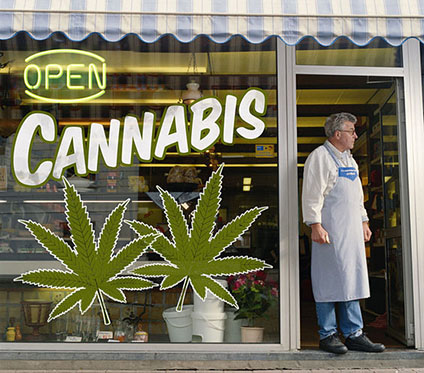It hasn’t even been 15 months since Massachusetts started selling legal weed. But legal dispensaries have sold more than $500 million in cannabis products, according to an analysis of data released last week by pot-focused law firm Vicente-Sederberg. As of January 29, legal weed sales have also generated more than $100 million in tax revenue, including more than $86 million for state coffers and another $15 million going to local governments.
Following the passage of a voter initiative to legalize cannabis for adults in 2016, sales of recreational pot began in Massachusetts with the opening of two licensed dispensaries on November 20, 2018. Today, 40 retail licenses in 35 cities and towns have been approved, and 34 shops have opened for business. Adam Fine, managing partner of Vicente-Sederberg’s Boston office, said that even in its initial stages, the Massachusetts cannabis market is already beginning to fulfill the promises of legalization.
“Over the past 15 months, half a billion dollars in cannabis sales took place above board in licensed retail stores instead of in the illegal market,” Fine said in a press release. “These businesses are creating jobs in their communities, and they are generating significant new revenue for our state and local governments. The benefits will only continue to grow as more retail stores get licensed across the state.”
During the first six months of 2019, average monthly cannabis sales in Massachusetts totaled $27.9 million. That figure jumped to $46.3 million per month for the second half of the year, an increase of 66 percent. Recreational cannabis sales in Massachusetts are subject to a 10.75 percent excise tax in addition to the state sales tax of 6.25 percent. Local governments can also add their own taxes of up to 3 percent.
In November, after legal cannabis sales in Massachusetts topped $400 million in the first year of legalization, Steven Hoffman, the chairman of the state’s Cannabis Control Commission, reported that 395 retail applications were still pending and that regulators were working to ensure that dispensary licenses were evenly distributed.
“I have no expectation there will be a retail store on every corner, but we have a lot more geographic expansion to do,” Hoffman said. “That’s the biggest part of our job.”
“I feel proud of what we’ve accomplished and I’m pleased with how the rollout has gone to date, but we are in the early stages and have a ton more work to do,” he added.











